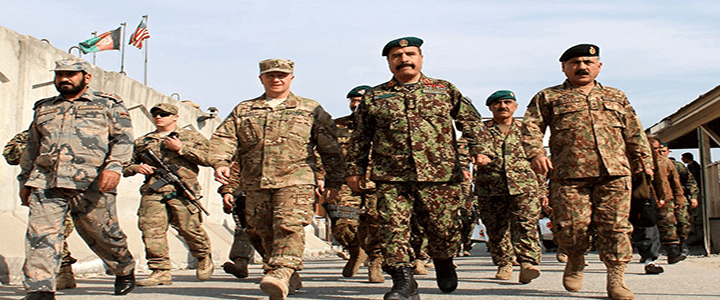The nation’s capital is gripped by its longest cold snap since 1989, but that didn’t stop the Trump administration from dropping the temperature a few degrees more by announcing that all security assistance to Pakistan was on hold “until the Pakistani Government takes decisive action against groups, including the Afghan Taliban and the Haqqani Network.”
From tweet to policy in three days
Presidential tweets, as discussed here recently, do not equal policy. But they do often signal the direction President Trump intends to steer the ship of state. “The United States has foolishly given Pakistan more than 33 billion dollars in aid over the last 15 years, and they have given us nothing but lies & deceit, thinking of our leaders as fools,” Trump wrote on New Year’s Day. “They give safe haven to the terrorists we hunt in Afghanistan, with little help. No more!”
Trump had already accused Pakistan of harboring terrorists last summer, and followed that with an announcement that the U.S. was withholding $225 million in military aid until the country took more steps to combat terrorism. So Monday’s tweet shouldn’t have been terribly surprising.
But the stakes are now raised.
On Tuesday, U.S. Ambassador to the United Nations Nikki Haley telegraphed the latest move when she said, “Pakistan has played a double-game for years.” She reiterated that the administration would not accept the harboring of terrorists inside Pakistan, and said “the president is willing to go to great lengths to stop all funding from Pakistan as they continue to harbor and support terrorists.”
Note her language: she did not say the president was wanted to stop all funding for Pakistan; she said he wants to stop all funding from Pakistan. She did not misspeak. Clearly, the administration is working from intelligence that shows the Taliban, the Haqqani Network, or both, are receiving assistance from the Pakistanis government.
It’s not hard to believe
Inter-Services Intelligence, Pakistan’s main spy agency, has operated without effective control for decades. The main condition Pakistan imposed on the U.S. aid to anti-Soviet mujaheddin in the 1980s was that the ISI be the conduit. They funneled that aid to the mujaheddin factions they could control the most. Among those was Jalaluddin Haqqani’s group—a group that still constitutes the greatest single threat to American lives in Afghanistan.
It is nearly impossible to believe that Osama bin Laden lived for years within spitting distance of the Pakistan Military Academy in Abbottabad without the ISI knowing he was there. And despite all of Pakistan’s outward attempts to rein-in violent groups operating from within its territory, the ISI appears not to have changed its ways one bit.
If one looks at Pakistani internal politics from last summer, it is fairly clear. Current Prime Minister Shahid Khaqan Abbasi took power after the country’s supreme court disqualified his predecessor, Nawaz Sharif, in July of 2017. Sharif criticized the ISI both privately and publicly, blaming them for the country’s increasing isolation.
According to an explosive October 2016 report in Dawn, Pakistan’s leading english-language newspaper, Punjab Chief Minister Shehbaz Sharif, Nawaz Sharif’s brother, accused the ISI of working behind the scenes to free suspected terrorists arrested by other government agencies. Nine months later, his brother was deposed, and a month after that, the U.S. began cutting off aid.
It’s not hard to connect those dots, and Sharif has said as much. Yesterday, sometime before the U.S. announcement, Sharif returned to Pakistan from a trip to Saudi Arabia. While he condemned Trump’s Monday tweet, he repeated his belief that Pakistan needs to take a long look in the mirror to understand why the world views twitch such suspicion.
“I will divulge the facts and unveil the evil,” Sharif told reporters Thursday. Grab the popcorn. Without saying it explicitly, Sharif is promising to make the ISI a central topic in Pakistan’s elections later this year.
It’s a start.




